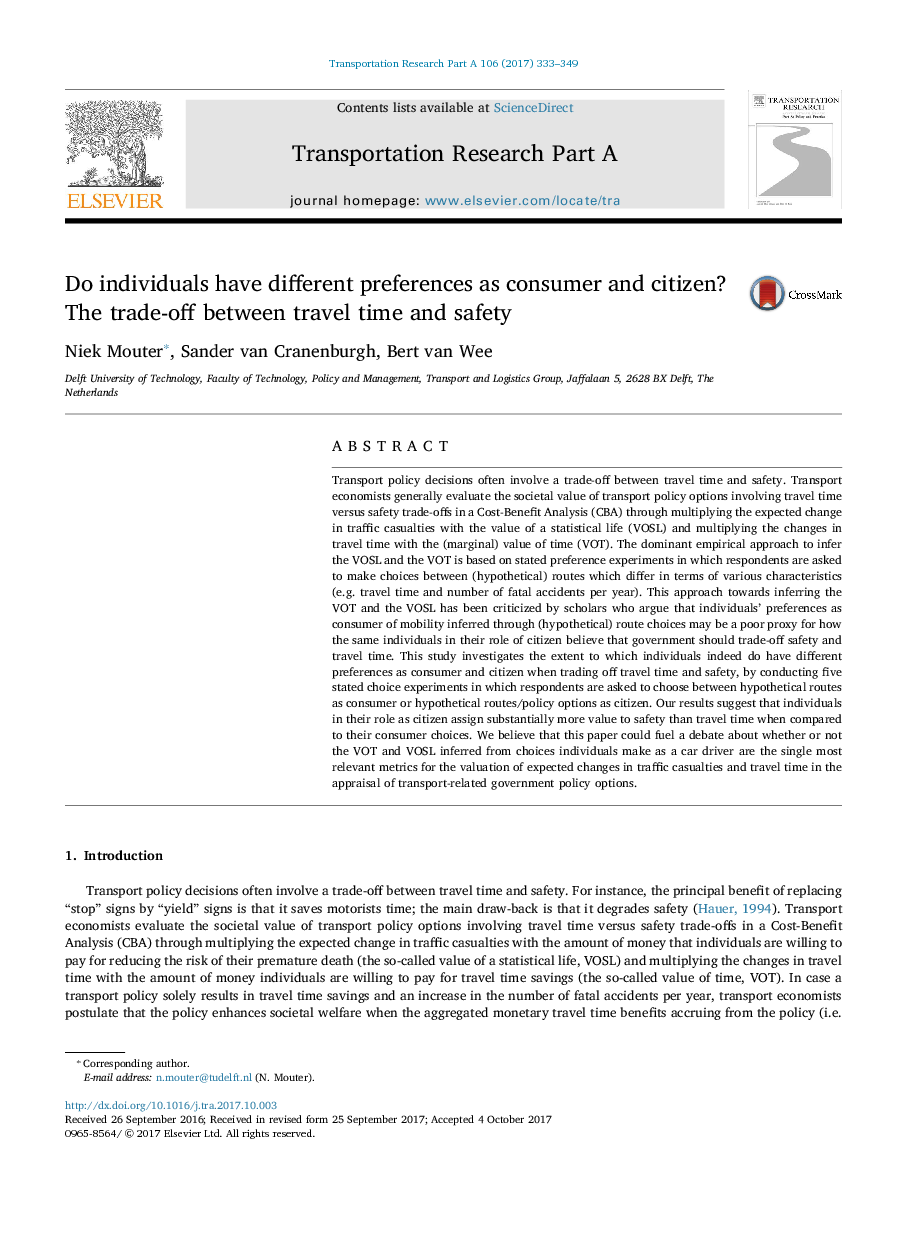ترجمه فارسی عنوان مقاله
آیا افراد دارای ترجیحات مختلف به عنوان مصرف کننده و شهروند هستند؟ تجارت بین زمان سفر و ایمنی
عنوان انگلیسی
Do individuals have different preferences as consumer and citizen? The trade-off between travel time and safety
| کد مقاله | سال انتشار | تعداد صفحات مقاله انگلیسی |
|---|---|---|
| 109448 | 2017 | 17 صفحه PDF |
منبع

Publisher : Elsevier - Science Direct (الزویر - ساینس دایرکت)
Journal : Transportation Research Part A: Policy and Practice, Volume 106, December 2017, Pages 333-349

